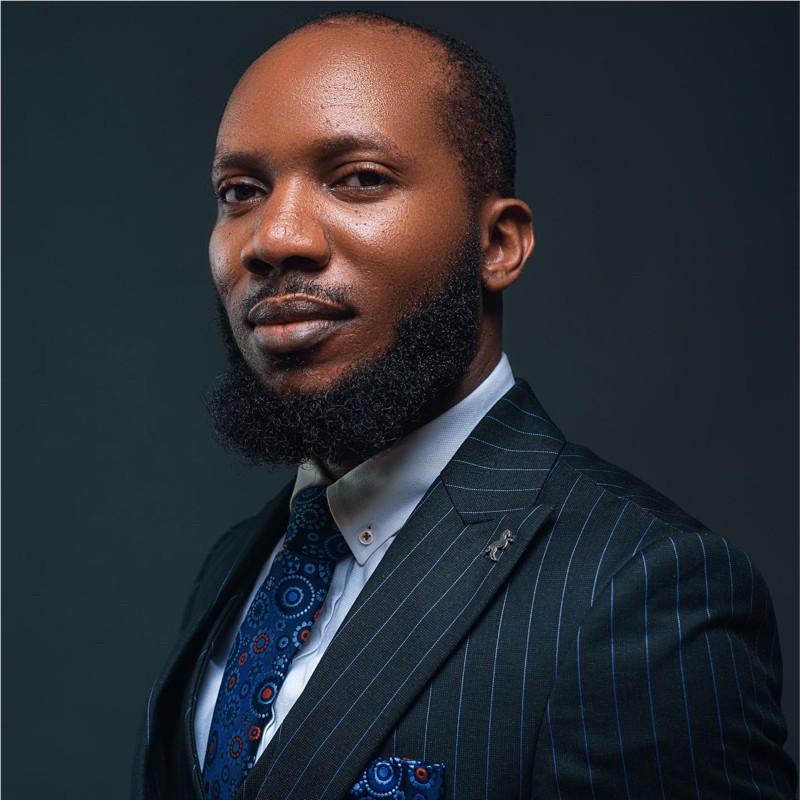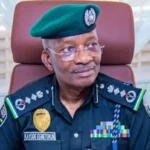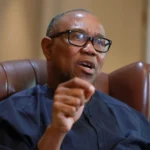Human Rights Lawyer Inibehe Effiong Criticizes EFCC’s Modus Operandi and Corruption Problem
In a bold statement on Sunday, renowned human rights lawyer Inibehe Effiong has publicly criticized the Economic and Financial Crimes Commission (EFCC), alleging that the commission itself has become embroiled in corruption. Effiong, who was once an outspoken ally of the EFCC, expressed disillusionment with the commission’s actions, stating that he could no longer support it with the same vigor as he once did.
Effiong’s criticisms come amid growing concerns about the EFCC’s conduct, its ability to effectively combat corruption, and its reputation in the public eye. In a post shared on his X handle, Effiong laid out a series of issues that have led to his changed stance, shedding light on what he perceives as the EFCC’s internal problems, including corruption, partisanship, and a lack of professionalism.
From Strong Ally to Critic: Effiong’s Disillusionment with the EFCC
Inibehe Effiong’s relationship with the EFCC has evolved over time. Historically, the lawyer was a vocal advocate for the commission, often defending its actions and supporting its efforts in the fight against corruption. Effiong’s past involvement with the EFCC includes attending their events, such as the annual anti-corruption march held in Lagos, and even intervening in legal matters involving the commission. He notably played a crucial role in ensuring the vacation of an injunction that sought to bar the EFCC, the Independent Corrupt Practices and Other Related Offences Commission (ICPC), and other agencies from investigating government officials, both past and present. His activism in these matters marked him as a staunch defender of the EFCC and its anti-corruption efforts.
Effiong’s support extended to legal challenges, including filing a lawsuit on behalf of the HEDA Resource Centre to challenge attempts to remove the former EFCC chairman, Ibrahim Magu. His willingness to defend the EFCC publicly demonstrated his belief in the commission’s mission at the time, which was to fight corruption and bring corrupt officials to justice, regardless of their political affiliations or power.
However, Effiong’s stance has shifted dramatically in recent years. He made it clear in his statement that although he still supports the legitimate efforts of the EFCC in fighting corruption, his relationship with the commission has changed. No longer an outspoken ally, Effiong has distanced himself from the commission, citing several key issues that have led to his disenchantment with the EFCC.
The EFCC’s Internal Problems: Corruption, Partisanship, and Nepotism
One of the central points Effiong raised in his critique of the EFCC was the commission’s internal corruption problem. According to the human rights lawyer, the EFCC is facing a crisis of credibility, marked by its alleged involvement in corrupt practices and its failure to live up to its mandate of combating corruption across all levels of society.
Effiong emphasized that the EFCC has developed a reputation for partisanship, suggesting that its actions have often been influenced by political considerations. He argued that the commission has, at times, treated political figures with leniency, seemingly protecting them from the full force of the law while going after individuals from other backgrounds with excessive zeal. This selective approach, Effiong believes, undermines the commission’s credibility and effectiveness in fighting corruption.
In addition to partisanship, Effiong also pointed to nepotism within the EFCC as another serious issue. Nepotism, the practice of favoring relatives or close associates in appointments and other professional decisions, has been widely criticized in both government and corporate sectors. Effiong’s claim suggests that the EFCC has been complicit in this practice, which further erodes its integrity and undermines the public trust in its ability to function impartially and effectively.
The human rights lawyer’s assertion that the EFCC is grappling with professionalism problems also adds another layer to the commission’s credibility crisis. According to Effiong, the commission’s operations lack the level of professionalism required to carry out its duties effectively and responsibly. He highlighted instances where the EFCC’s actions have been far from professional, raising doubts about the commission’s commitment to maintaining high standards of operation.
The EFCC’s Treatment of Suspects: A Call for Change in Modus Operandi
Perhaps one of the most alarming criticisms Effiong raised was the EFCC’s treatment of suspects and the commission’s tactics when conducting raids and investigations. Effiong condemned what he described as the EFCC’s practice of raiding homes at odd hours, breaking down doors, and harassing and brutalizing innocent people in the process. He argued that these actions, which violate the rights of suspects, cannot be justified by the EFCC’s mission to fight corruption.
According to Effiong, the EFCC’s heavy-handed tactics have led to a situation where many Nigerians view the commission with suspicion and distrust. He argued that such tactics, which are often seen as aggressive and unjustified, erode public confidence in the commission and contribute to the perception that it is no longer an impartial and effective institution. Effiong noted that even when the commission acts unprofessionally or unlawfully, it rarely offers apologies or compensation to the victims of such actions, further exacerbating public resentment.
Effiong’s call for a change in the EFCC’s modus operandi reflects his belief that the commission must adopt a more transparent, accountable, and professional approach to its work if it wants to regain the public’s trust and support. He stressed that the EFCC cannot expect public support if it continues to operate in a manner that violates the rights of ordinary Nigerians and engages in behavior that is seen as authoritarian or unjust.
The Decline in the War Against Corruption
Another significant issue Effiong raised is the perceived decline in the EFCC’s commitment to the war against corruption. According to the human rights lawyer, the fight against corruption has taken a backseat in recent years, and the EFCC’s focus has shifted away from its original mandate. Effiong suggested that the commission’s priorities have become misaligned, and that it is no longer as focused on tackling corruption as it once was.
Effiong did not offer specific examples of the EFCC’s failure to combat corruption but suggested that the commission’s internal problems, such as corruption, partisanship, and lack of professionalism, have hindered its ability to effectively address corruption in the country. He implied that the commission’s internal dysfunctions have become a distraction, leading to a decline in the EFCC’s overall performance.
The war against corruption in Nigeria has long been a contentious issue, with various government agencies and civil society groups raising concerns about the effectiveness of efforts to fight corruption. Effiong’s criticism of the EFCC aligns with the broader debate about the lack of progress in addressing corruption at all levels of government and society.
The Need for Reform: A Call for Accountability and Transparency
Effiong’s post ultimately calls for significant reform within the EFCC. He argued that if the commission wants to regain public support and effectively combat corruption, it must undergo fundamental changes in its approach to governance, operations, and accountability. Effiong suggested that the EFCC should prioritize professionalism, transparency, and impartiality in its work, while also ensuring that its actions are in line with the rule of law and respect for human rights.
The EFCC’s approach to tackling corruption must be aligned with the principles of justice, fairness, and due process. Effiong’s call for a change in the commission’s modus operandi reflects his belief that a more balanced and law-abiding approach is needed if the EFCC is to fulfill its mandate effectively and regain the public’s trust.
Conclusion: The Road Ahead for the EFCC
Inibehe Effiong’s criticisms of the EFCC represent a broader dissatisfaction with the commission’s performance and its handling of corruption-related cases in Nigeria. While acknowledging the importance of the EFCC’s mission, Effiong has made it clear that he can no longer be an outspoken ally of the commission due to the numerous problems he perceives within its ranks. His call for reform and change is a crucial reminder that the fight against corruption in Nigeria requires a commitment to professionalism, transparency, and respect for human rights.
As Nigeria continues to grapple with systemic corruption, the EFCC’s ability to regain public confidence and live up to its mandate will be critical. Effiong’s message serves as a wake-up call for the commission to reassess its approach, address its internal issues, and ensure that its actions reflect the values of justice, accountability, and fairness.
The future of the EFCC depends on its ability to adapt and evolve, making necessary changes to its modus operandi and ensuring that it remains an effective tool in the fight against corruption. Only through genuine reform and a renewed commitment to its mission can the EFCC hope to restore its credibility and continue its vital work in tackling corruption in Nigeria.




